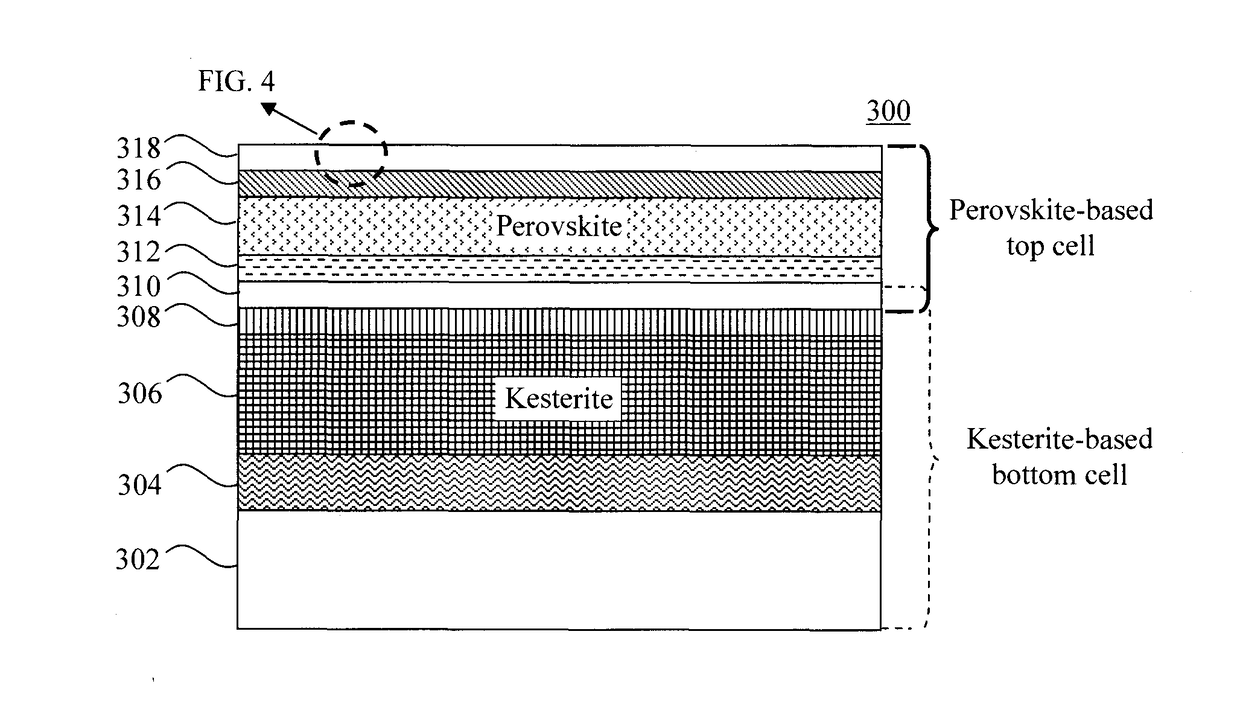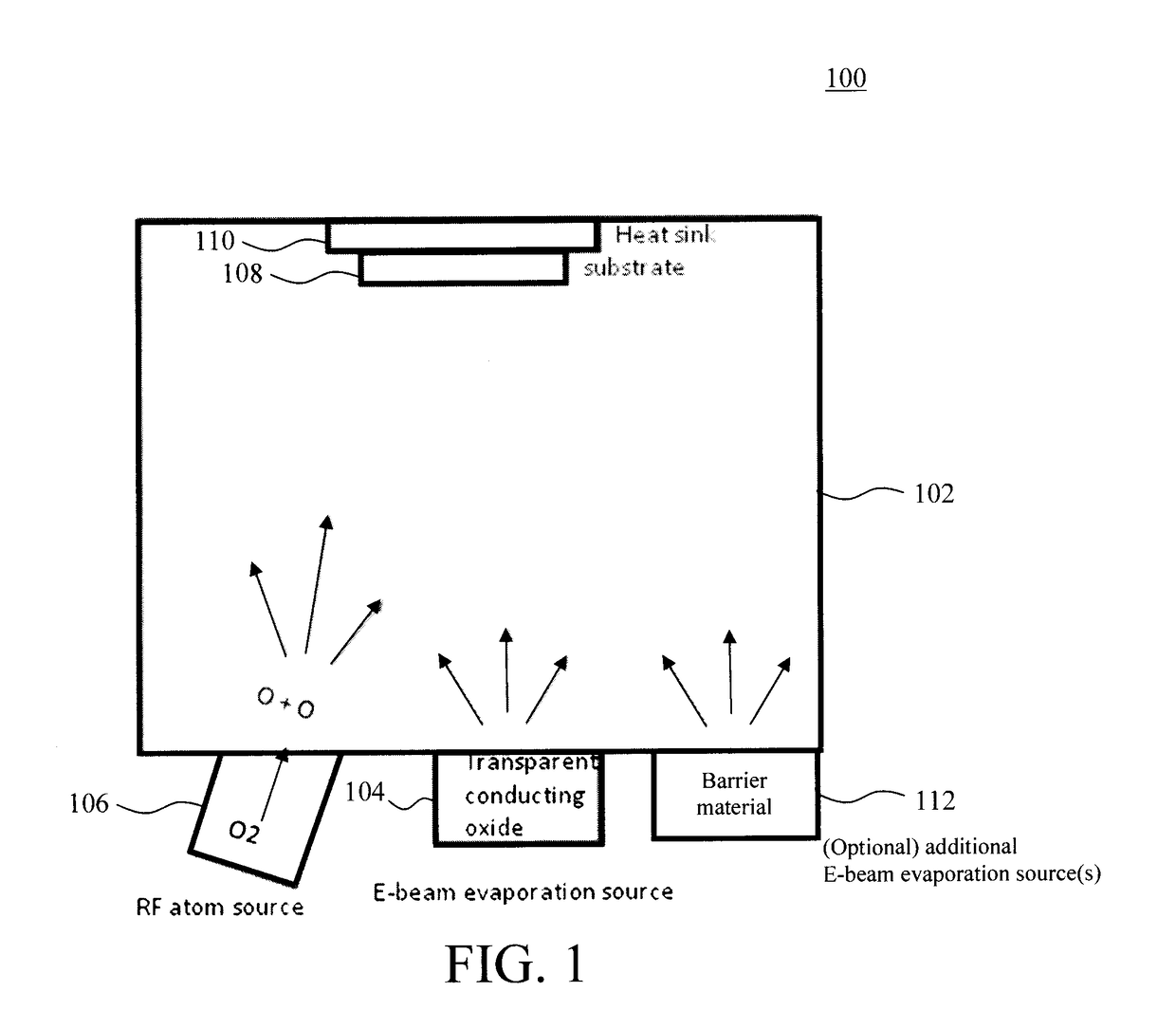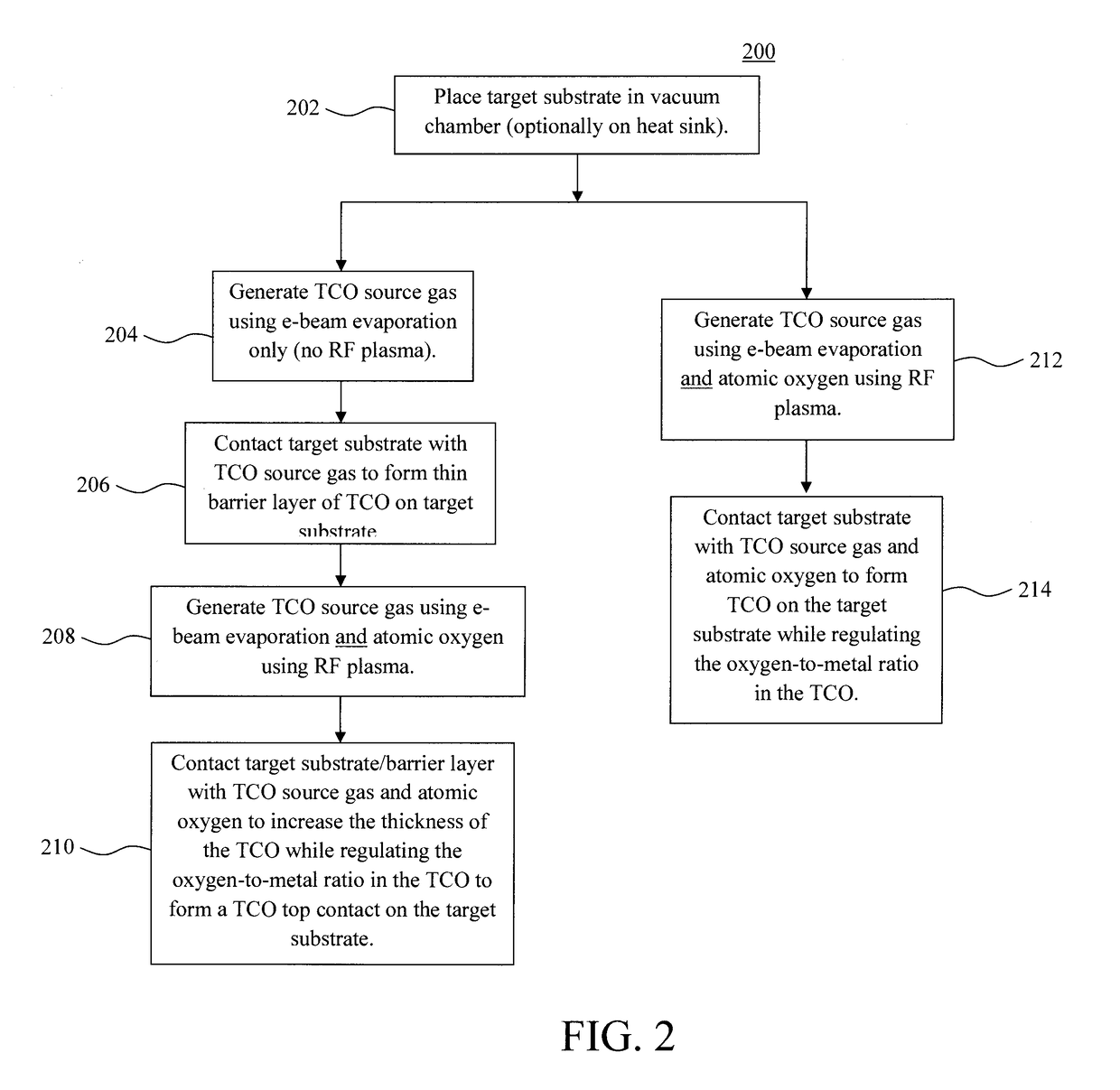Transparent Conducting Oxide As Top-Electrode In Perovskite Solar Cell By Non-Sputtering Process
a solar cell and transparent conducting technology, applied in the field of transparent conducting oxide (tco), can solve the problems of deformation and delicate materials
- Summary
- Abstract
- Description
- Claims
- Application Information
AI Technical Summary
Benefits of technology
Problems solved by technology
Method used
Image
Examples
Embodiment Construction
[0013]As provided above, some high-efficiency absorber materials for photovoltaic devices, e.g., metal-organic halide perovskites, are delicate and degrade under harsh processing conditions—such as the high-temperature or atomic bombardment conditions employed during the sputtering based processes commonly employed to form transparent conducting oxide (TCO) top contact / electrodes in typical photovoltaic devices. Namely, any process to which these absorber materials are exposed that involves temperatures at, or exceeding, ˜100° C. will damage the perovskite. Additionally, conditions of atomic bombardment by charged species will also damage the perovskite. Advantageously, provided herein are techniques for forming TCO contact / electrodes that do not involve sputtering and do not employ temperatures exceeding ambient room temperature (e.g., from about 20° C. to about 26° C., and ranges therebetween) or directly expose the perovskite to atomic bombardment. The terms “contact” and “electr...
PUM
 Login to View More
Login to View More Abstract
Description
Claims
Application Information
 Login to View More
Login to View More - Generate Ideas
- Intellectual Property
- Life Sciences
- Materials
- Tech Scout
- Unparalleled Data Quality
- Higher Quality Content
- 60% Fewer Hallucinations
Browse by: Latest US Patents, China's latest patents, Technical Efficacy Thesaurus, Application Domain, Technology Topic, Popular Technical Reports.
© 2025 PatSnap. All rights reserved.Legal|Privacy policy|Modern Slavery Act Transparency Statement|Sitemap|About US| Contact US: help@patsnap.com



